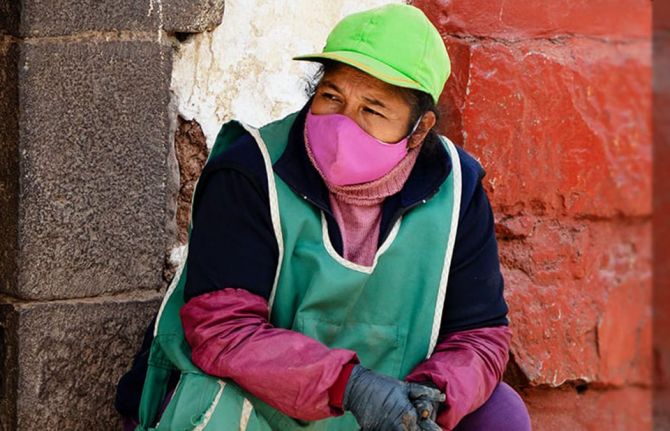

Press Statement
UNAIDS welcomes landmark agreement between Medicines Patent Pool and Merck Sharp and Dohme
28 October 2021 28 October 2021GENEVA, 28 October 2021—UNAIDS welcomes the agreement between the Medicines Patent Pool (MPP) and the pharmaceutical company Merck Sharp & Dohme through which the intellectual property rights over an antiviral medicine to treat mild to moderate forms of COVID-19 in adult patients are shared with interested sub-licensees on a non-exclusive and transparent basis. The new medicine, molnupiravir, is still pending regulatory approval but has obtained optimal results in clinical trials.
“This agreement is a good first step, where public health has been prioritized over profits,” said the Executive Director of UNAIDS, Winnie Byanyima. “This new treatment promises to be a valuable addition in the response to COVID-19 and access to it will be considerably widened by allowing companies from around the world to produce more affordable versions of the medicine.”
This is the first licensing agreement on a COVID-19 tool to be established within a public health perspective. It is a significant development considering the lack of medicines to treat COVID-19. The initiative will allow the entry into market of more affordable generic versions of this medicine as soon as it is granted authorization from national and/or regional health regulatory bodies or included in the World Health Organization (WHO) list for emergency use.
According to the agreement, pharmaceutical companies based anywhere in the world that are interested and qualified to manufacture generic versions of the product will be allowed to commercialize the medicine in the 105 countries included in the geographic scope of the licensing agreement. Nevertheless, recognizing that COVID-19 knows no geographic boundaries, UNAIDS expects that all countries suffering the disease burden will have access to the generic market for this product. All health technologies should be considered global public goods.
This agreement includes all sub-Saharan countries, all low-income countries, the majority of lower-middle-income countries and 20 upper-middle-income countries.
Originally established to negotiate public health-oriented licensing agreements for HIV, tuberculosis and malaria products, the MPP has been an important player in the HIV response by promoting competition within the pharmaceutical market and helping to push down the prices of essential medicines. UNAIDS and MPP are both members of the steering committee of the WHO COVID-19 Technology Access Pool (C-TAP), an initiative that calls for the voluntary sharing of technologies, knowledge, data and intellectual property rights of health products to prevent, diagnose and treat COVID-19.
“It is high time that similar arrangements are also made for making COVID-19 vaccines. What works for medicines should also work for vaccines and diagnostics and other life-saving technologies,” said Ms Byanyima. “I call on the Group of Twenty and other governments to ensure that patent holders are obliged to share life-saving tools and technologies equitably.”
UNAIDS
The Joint United Nations Programme on HIV/AIDS (UNAIDS) leads and inspires the world to achieve its shared vision of zero new HIV infections, zero discrimination and zero AIDS-related deaths. UNAIDS unites the efforts of 11 UN organizations—UNHCR, UNICEF, WFP, UNDP, UNFPA, UNODC, UN Women, ILO, UNESCO, WHO and the World Bank—and works closely with global and national partners towards ending the AIDS epidemic by 2030 as part of the Sustainable Development Goals. Learn more at unaids.org and connect with us on Facebook, Twitter, Instagram and YouTube.
